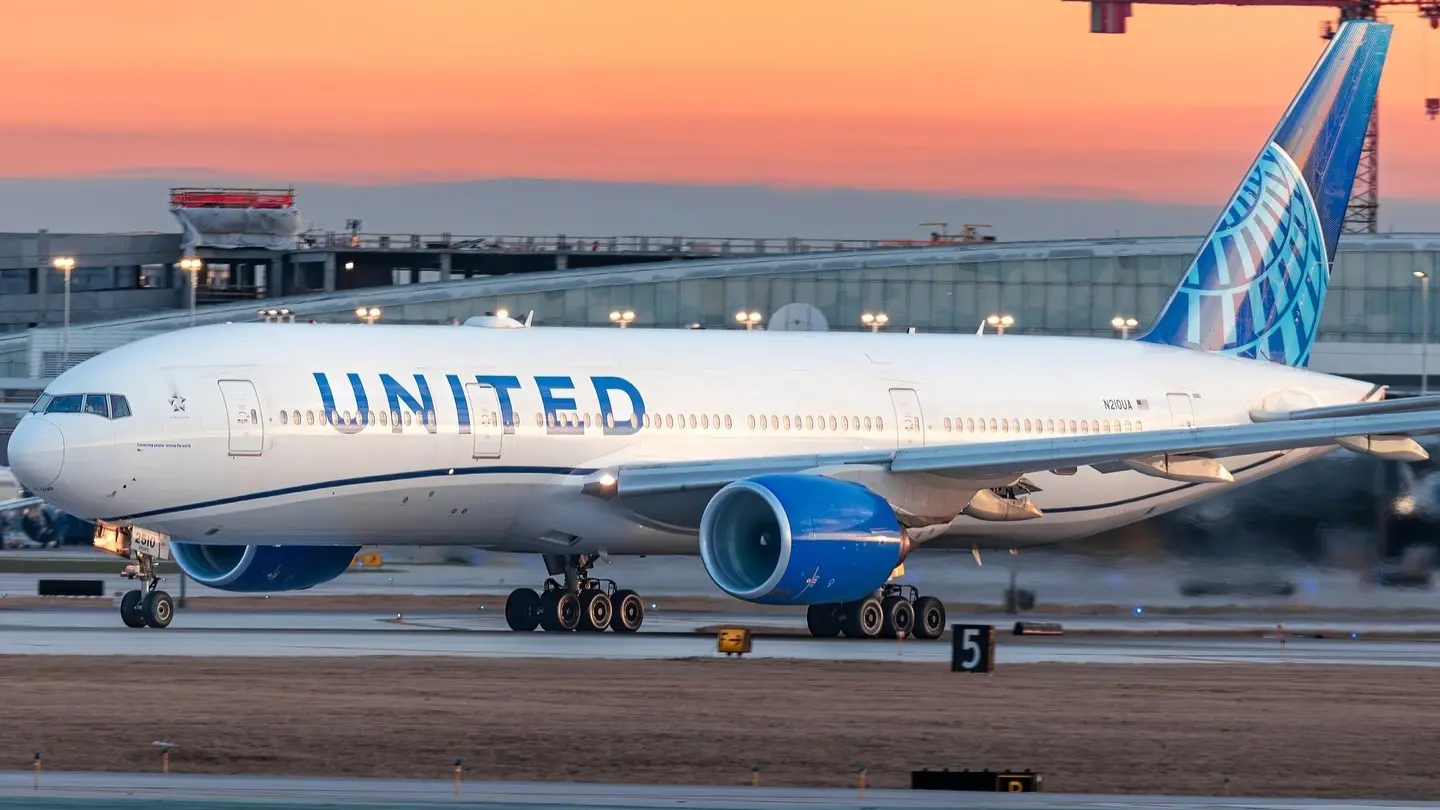
CHICAGO- United Airlines (UA) has decided against purchasing Boeing company’s upcoming 777X, the world’s largest twin-engine plane in production.
Patrick Quayle, United’s Senior Vice President of global network planning and alliances, explained the decision to Business Insider.
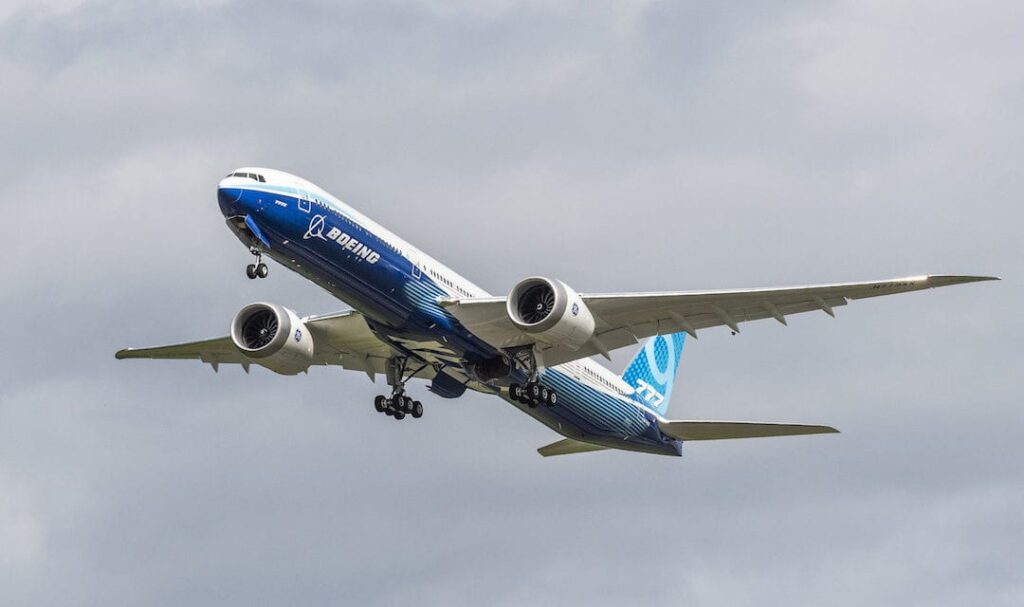 Photo: Boeing
Photo: BoeingWhy United Says No to Boeing 777X?
Quayle acknowledged the 777X as a “very good airplane” but emphasized its size as the primary deterrent. United’s hub structure favors smaller widebody aircraft for more efficient operations across its network.
Boeing faces challenges in selling the 777X to US carriers despite securing 481 orders from international airlines. United’s decision highlights a potential mismatch between the aircraft’s capacity and the needs of US-based carriers with extensive domestic networks.
United Airlines operates seven hubs across the United States: Chicago, Houston, Washington DC, San Francisco, Los Angeles, Denver, and Newark, New Jersey. This extensive network allows United to distribute passenger traffic across multiple hub cities, reducing the need for ultra-high-capacity aircraft on individual routes.
Quayle illustrated United’s strategy using their London and Sydney services as examples. The airline serves London 22 times daily from all seven hubs, while Sydney receives flights from San Francisco, Los Angeles, and Houston. This approach eliminates the need to funnel passengers through a single central hub before international departures.
United’s network strategy prioritizes direct connections from various regions to international destinations.
Quayle emphasized, “We’re not taking people from the west coast, flying them to the east coast, and then flying to London. We’re flying nonstop from the West Coast, nonstop from the mountain region, nonstop from Houston and Chicago, and nonstop from the East Coast.”
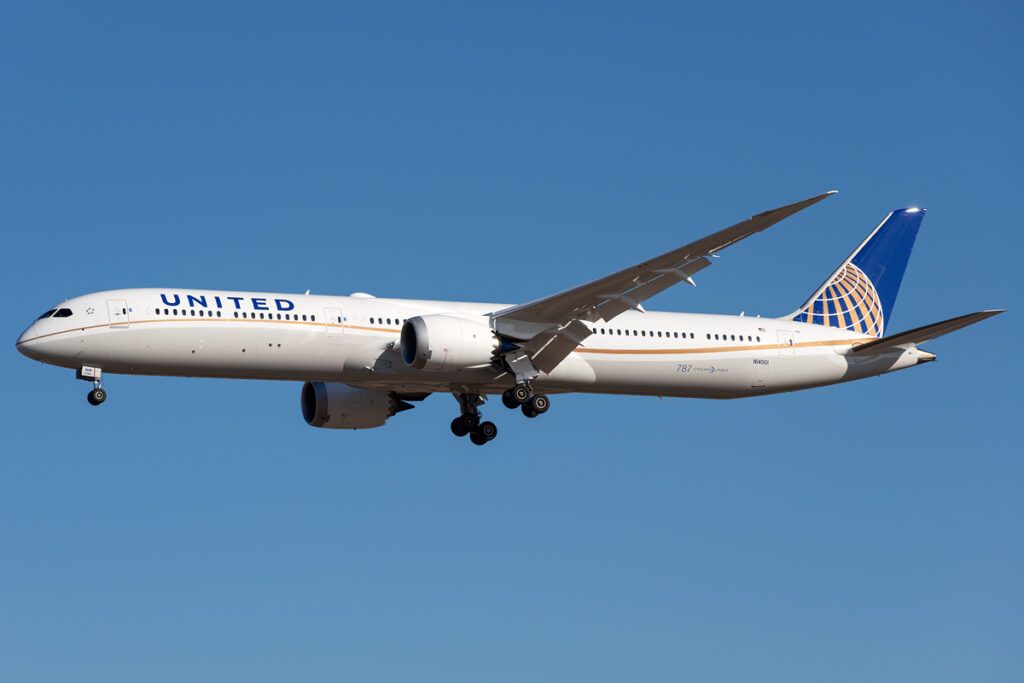 Photo: By Danny Yu – https://www.airliners.net/photo/United-Airlines/Boeing-787-10-Dreamliner/5587795/L, CC BY-SA 4.0, https://commons.wikimedia.org/w/index.php?curid=80697105
Photo: By Danny Yu – https://www.airliners.net/photo/United-Airlines/Boeing-787-10-Dreamliner/5587795/L, CC BY-SA 4.0, https://commons.wikimedia.org/w/index.php?curid=80697105Choosing 787s over 777X
United Airlines has significantly expanded its Boeing 787 Dreamliner fleet, amassing a record 150-strong order book since 2022. The airline currently operates over 70 Dreamliners across all three variants, offering diverse range and capacity options for its route network.
The 777X, Boeing’s latest widebody offering, aims to replace the aging 747 and Airbus A380 with improved efficiency for long-haul, high-capacity routes. However, United’s strategy diverges from this trend, focusing on smaller, more flexible aircraft.
Patrick Quayle, United’s SVP of global network planning and alliances, explains that the 777X’s size better suits airlines with centralized hub operations. He cites Emirates (EK), Qatar Airways (QR), Cathay Pacific (CX), and British Airways (BA) as examples of carriers that have ordered the 777X, all operating from single major hubs.
United’s decision reflects a broader trend among US carriers. American Airlines (AA), Delta Air Lines (DL), and United previously avoided ordering the Boeing 747-8 and Airbus A380 due to their fragmented traffic patterns across multiple hubs.
The future of 777X orders among other major US airlines remains uncertain. American Airlines recently ordered 260 new aircraft from Airbus, Boeing, and Embraer, but notably excluded widebody models. The airline is currently focusing on overhauling its existing 777 cabins.
Delta Air Lines retired its classic 777s during the pandemic and now operates a fleet including 767s, A330s, and the Airbus A350.
Delta’s choice of the A350-900 in 2014 as a replacement for larger widebodies like the Boeing 747-400 underscores the industry shift towards more efficient, medium-capacity long-haul aircraft.
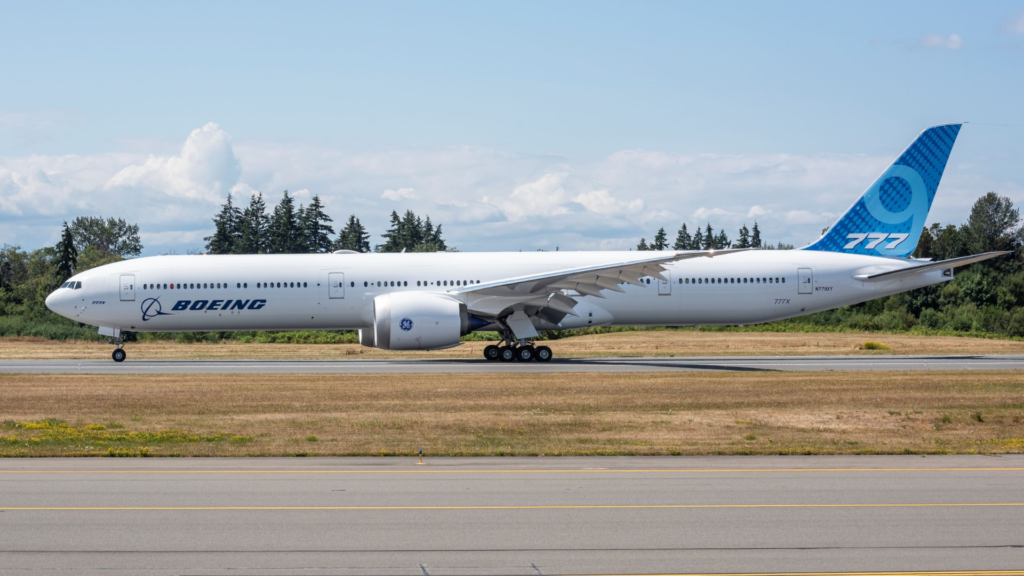 Photo: Boeing
Photo: BoeingBottom Line
I think United will continue with the 787 Dreamliners family which includes 787-8,-9, and -10 aircraft. The reason mentioned by them clearly indicates their strategy to opt for these planes.
Also, the 777X certification delays and recent problems might cause airlines to think twice before ordering this aircraft.
The 777X’s certification will introduce revolutionary folding wingtips, enhancing airlines’ operational flexibility. Passengers will experience a more spacious cabin environment and innovative lighting systems that mimic natural phenomena like sunsets and the northern lights, elevating the in-flight experience.
These advancements position the 777X as a significant leap in aircraft design and passenger comfort.
What do you think about the Boeing 777X? Will it be as successful as its predecessor? Let us know in the comment section.
Join us on Telegram Group for the Latest Aviation Updates. Subsequently, follow us on Google News.
United Airlines to Fly New Airbus A321XLR in Dec 2025
The post Boeing New 777X Not Good Fit for United Airlines appeared first on Aviation A2Z.

 1 rok temu
1 rok temu
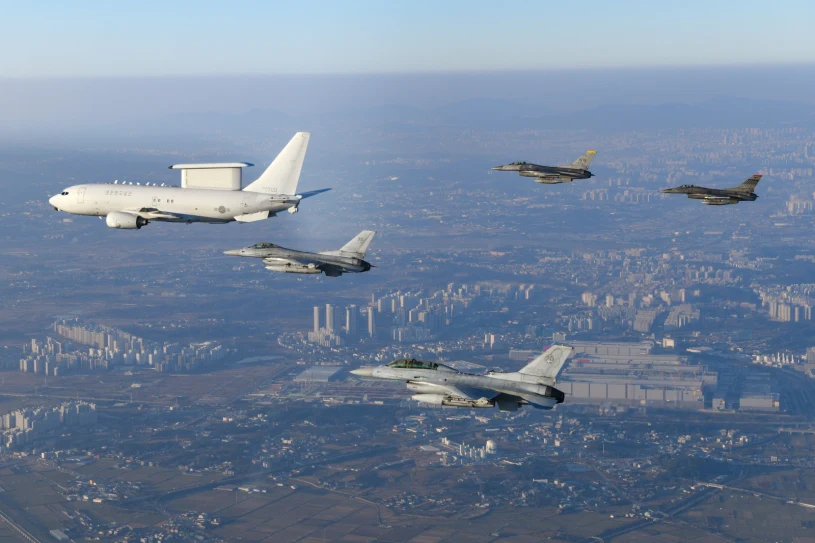









![Zderzenie na Piłsudskiego. Uszkodzone 5 aut [FOTO]](http://codziennikmlawski.pl/wp-content/uploads/2025/11/b0777bcb-acaa-4ae4-b5f3-41457eaffebc.jpg)